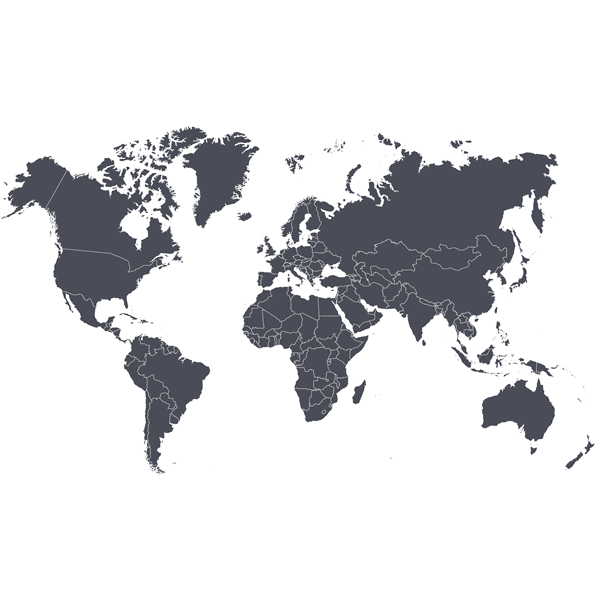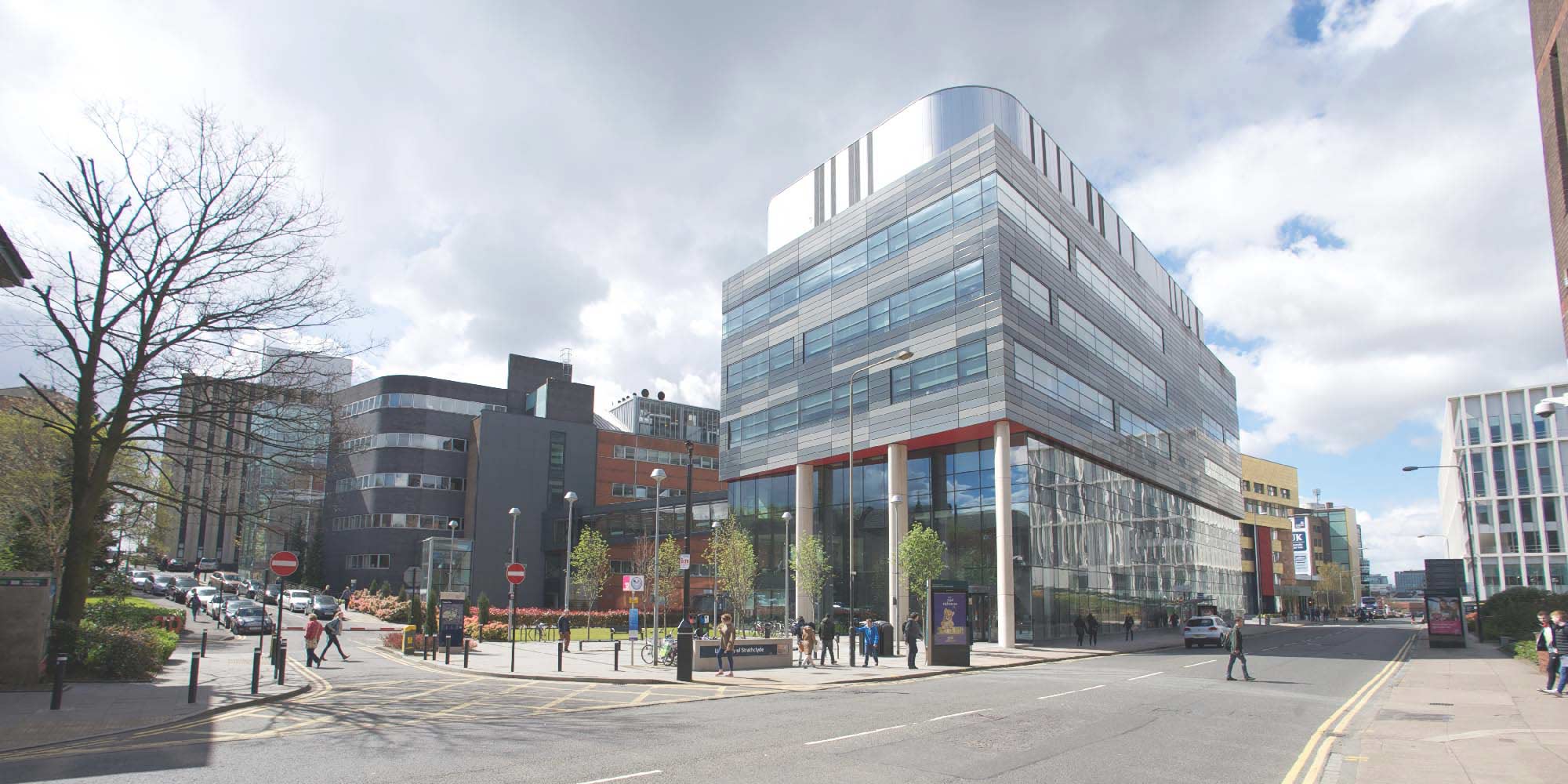BA Hons Social Work
ApplyKey facts
- UCAS Code: L501
- Accreditation: Scottish Social Services Council
Second-year entry: may be available for suitably-qualified students
Study with us
- benefit from a blend of university and agency-based opportunities
- prepare for the challenging role of a social worker through the opportunity to interact with service users and their carers
- complete three placements in social work and not-for-profit settings
- study abroad in one of our partner institutions
- validated by the Scottish Social Services Council
Applying to Social Work
Learn more about suitable candidates for Social Work, the application process and how to prepare.
Why this course?
Social workers have a responsibility to promote the rights of powerless people, protect the vulnerable and disadvantaged and address the causes and effects of offending behaviour.
Validated by the Scottish Social Services Council and closely aligned to the Standards in Social Work Education, the degree will give you a recognised professional award in social work. It will also prepare you for the challenging role of being a social worker.
You will have the opportunity to study abroad, thanks to our well-established links with New York University.


What you’ll study
Classes throughout the four years focus on social work practice issues. Subjects studied include:
- psychology
- social policy
- law
- social work practice
- sociology
In Year 4 you'll write an Honours dissertation.
Work placement
During the course you’ll undertake three placements - one observational placement in Year 2 and an assessed placement in Years 3 & 4.
These placements take place in a variety of social work settings across the west and southern coast of Scotland, including social work departments and voluntary organisations. You’ll get the opportunity to work with children and young people, older people and adults and people with disabilities or mental health problems and people who use criminal justice services.
Students are required to register with the Scottish Social Services Council (SSSC) including protecting vulnerable groups scheme (PVG). This is for successful applicants applying to courses which involve placement opportunities (working with children, young people and vulnerable adults).
Major projects
You'll undertake a dissertation during Year 4. You can choose a social work topic that is of interest to you and you'll be allocated a supervisor with similar interests. You'll have the opportunity to carry out research with social workers and/ or people who use services.
Continuous Professional Development
Over the four years of study you'll participate in a programme of practice learning days that aim to further develop your knowledge and skills in preparation for professional social work practice. This programme is responsive to the needs of each cohort of students as identified by both staff and students.
Postgraduate study
Upon qualification as a social worker there are a number of opportunities for further study. The BA in Social Work is a generic qualification which enables you to work with a wide range of service user groups.
Postgraduate study offers the opportunity to specialise for example by undertaking the Postgraduate Certificate in Mental Health Social Work or the MSc in Advanced Residential Childcare.
International experience
The BA Social Work at Strathclyde has an exchange agreement with New York University, meaning there are opportunities to study abroad.
Semester 1
Preparing for Lifelong Learning
This module is designed to equip you with the skills and knowledge required for a proactive approach to learning and study.
It aims to help you reflect on your own approaches to learning, understand the role of academic enquiry and research within this.
You'll consider how perceptions of learning arise and how they influence the process and outcome of learning.
Understanding Social Science & Social Research
This module introduces and explores social science theories and approaches which are relevant to contemporary social work, drawing in particular from sociology and social policy.
The module also has an emphasis on research awareness. For example, public discourses around social policy and interpreting research data relating to issues such as poverty and inequality. You're introduced to an appreciation of how research is used in public policy.
Psychology for Social Work
This module will introduce you to the key socio-psychological theories informing an understanding of human development and behaviour. Areas covered will include individual, group and community factors such as identity, family, disability and culture.
You'll develop an understanding of the process of development for individuals and groups. This will include discussion of the key factors in promoting resilience and those which may inhibit healthy growth.
Semester 2
Individuals, Communities & Society
This module will prepare you for work with individuals, families and communities. It will equip you with the skills necessary to develop a critical understanding of the complex interactions between individuals, groups and wider social contexts.
The module will assist you to identify the social processes that can result in inequalities within communities and will build on the sociological and psychological theories introduced in year one of the course. The module will consider the ways in which sources of inequality can be challenged at an individual, community and structural level.
Poverty, Disadvantage and Discrimination
Values, Ethics and Justice
This module provides you with a historical overview of the development of social work values and ethics. It introduces you to core ethical concepts in social work and encourages you to understanding the ethical dimensions of choice, decision-making, interventions and the use of professional discretion.
Semester 1
Law for Social Work Practice
The module will provide you with a thorough understanding of the legal basis for social work intervention and the significance of the relationships with statutory social services and the independent social services sector.
It will enable you to understand the social worker’s role as statutory agent with duties and responsibilities to protect the public and uphold the law by providing you with a firm grounding in the legislation that underpins and impinges on your practice.
Social Work Organisation and Collaborative Practice
This module examines the delivery models and organisational structures that underpin social work services. A key issue to be addressed will be the extent to which changes in organisation and structures facilitate the role and value base of social work.
The module will also take account of the increasing emphasis on inter-professional working across public services. It will examine the evidence base for pursuing inter-professional working and the challenges it poses for the voice and values of social work to be heard amongst other professional disciplines.
Social Work Processes & Practices
This module is intended to equip you with the practice skills and theory required in order to take Assessed Practice 1.
The module will provide you with the opportunity to rehearse skills fundamental to sound and appropriate professional relationships It's the primary means by which you're assessed as competent to undertake practice learning in a service delivery setting.
Semester 2
Observational Placement
You will undertake a 10 day observational placement in a social work agency to integrate learning from previous modules. This placement contributes towards your readiness for practice in year 3.
Social Work in Diverse Contexts
Social workers practise in a diverse range of settings. This module comprises a series of options which enable students to develop a deeper, critical understanding of social work practice in a particular setting, such as criminal justice, community care, residential childcare or children and families.
Understanding Risk and Protection
Social workers are required to develop skills in assessing and managing risk and this module offers a range of learning experiences to facilitate this development. There will be a thorough examination of the concepts of risk and protection.
Students will be encouraged to construct their own understandings of what constitutes acceptable risk and how such definitions might arise. The social and political dimensions of risk and protection will be explored using material contained in public enquiry reports over the past 30 years.
Students will be required to consider the transferability of models and methods of risk assessment and risk management across service user groups.
Elective
The University recognises the additional breadth of learning which comes from students being afforded the opportunity to select a module from outside the range of prescribed and mandatory modules within their chosen programme of study.
In year 2, semester 2, students are, therefore, enabled and required to select a module from the extensive range of elective modules offered as part of the BA degree in Humanities and Social Sciences. This will allow you to try a subject that you’ve not studied before or develop your knowledge further in an area of social work.
Semester 1
Practice Learning 1: Organisational Context
The module aims to provide you with an opportunity to understand the range of roles undertaken by social workers within an organisational context and how social work/care organisations function and fulfil their duties to individuals, children, parents, families and extended families, carers, groups and communities, professionals and organisations.
This will be undertaken with the module ‘Practice Learning 1: Social Work Practice’, as part of an 80-day placement in a social work agency.
Practice Learning 1: Social Work Practice
This module is intended to provide you with opportunities to develop skills, values, knowledge and competence in a specified range of key components of social work practice, and to integrate this with learning across all prior modules undertaken on the course.
This will be undertaken with ‘Practice Learning 1: Organisational Context’, as part of an 80 day placement in a social work agency
Semester 2
Social Work Approaches and Methods
Social Research for Social Work
This module aims to encourage you to take a reflective approach to research and its links to social work policy and practice and to develop research-mindedness as a requirement of ethical and effective practice.
The module will communicate the importance of research in contributing to continuing professional development and will prepare you for undertaking your dissertation in Year 4 of the course.
Social Work in a Global Context
The process of globalisation has resulted in an increasing diversity in Scotland’s population. There's a need for social work practice which recognises effectively this diversity and difference and the marked adversity or disadvantage and discrimination faced by some migrants.
Semester 1
Practice Learning 2: Organisational Context
This module builds on learning from practice learning 1 (year 3). It provides you with a more in-depth understanding of the roles undertaken by social workers within an organisational context and how social work/care organisations function and fulfil their duties to individuals, children, parents, families and extended families, carers, groups and communities, professionals and organisations.
This will be undertaken with the module ‘Practice Learning 2: Social Work Practice’, as part of an 80-day placement in a social work agency.
Practice Learning 2: Social Work Practice
This module will provide you with a range of opportunities to develop skills, values, knowledge and competence of social work practice in a specified range of key components of social work practice. It builds on learning from Practice Learning 1 modules and integrates this with knowledge gained across all prior modules undertaken on the course
This will be undertaken with the module ‘Practice Learning 2: Organisational Context’, as part of an 80-day placement in a social work agency.
Semester 2
Preparing for Professional Practice: Ready and Radical
This module aims to help you consolidate and develop the knowledge, understanding and skills required to engage in professional development at a range of levels after qualification. It provides an opportunity to track, record and review your individual development (a process which began in the module ‘Preparing for Lifelong Learning’ and continued in activities through Years 2 and 3 of the course) and use this a basis to prepare for the requirements of professional practice. Associated with this, this module requires that students place their personal development in the context of engagement in the social work agenda, considering ways in which the profession can improve its engagement with social need to further promote social change and social justice.
Honours Dissertation
Social workers need analytical and research skills in order to plan, monitor and evaluate professional practice.
This module builds on learning in Social Research and Social Work by providing you with the opportunity to develop your research competence by undertaking a small scale research project on some aspect of social work for your honours dissertation.
Glasgow is Scotland's biggest & most cosmopolitan city
Our campus is based right in the very heart of Glasgow. We're in the city centre, next to the Merchant City, both of which are great locations for sightseeing, shopping and socialising alongside your studies.
Life in Glasgow
Assessment
You will be assessed by essays, reports, presentations (which may include video), peer group assessments and, in only a few cases, examination.
Learning & teaching
Our teaching methods include:
- lectures
- seminars
- group work
- video
- online resources
The course is delivered by a skilled staff team many of whom hold a professional social work qualification.
Guest lectures
A range of guest lecturers offering expertise in a range of subjects also contribute to the course. This includes input from social work practitioners and people who use services and their families.

Entry requirements
Required subjects are shown in brackets.
| Highers |
AABB (entry generally from S6 including English or a social science, from the preferred subject list below at B, Maths/Applications of Mathematics National 5 C and an English qualification at the minimum of SCQF level 5). Applicants will also be asked to submit a written response to a scenario and participate in an interview. ABBB (entry generally from S6 including English or a social science from the preferred subject list below at B, Maths/Applications of Mathematics National 5 C and an English qualification at the minimum of SCQF level 5). Applicants will also be asked to submit a written response to a scenario and participate in an interview. Preferred subjects
|
|---|---|
| A Levels |
ABB- BBB. Applicants will also be asked to submit a written response to a scenario and participate in an interview.
|
| International Baccalaureate | 32-30 |
| HNC/HND | Applicants must have a maths/numeracy qualification at minimum SCQF 5 and English qualification at minimum SCQF 5. Year 1 entry: preferred relevant HNC subjects are Social Services, Social Sciences, Childhood Practice, Counselling, Healthcare Practice, Health & Social Care, Working with Communities and Law or Legal Services, A in Graded Unit and relevant social care experience. Year 2 entry: Year 2 entry applicants will normally be required to participate in an entry assessment and interview.
|
| Irish Leaving Certificate | Two H2 passes and three H3 passes including English, Ordinary at grade B3/O3 or above (D2/H5 at Higher Level).
|
| International students | Where English is a second language, an IELTS (Academic) score of 7.0 overall is required. View the entry requirements for your country. |
| Deferred Entry | Not normally accepted |
Additional Information
- we look for evidence of professional suitability through completion of a Further Information Response Pack and 2nd reference; registration with the Scottish Social Services Council (SSSC) and Protecting Vulnerable Groups (PVG) scheme is required (offending history may not exclude you from consideration)
- suitable candidates will be selected on the basis of their application form, personal statement, references and successful completion of a Further Information Response Pack and may be asked to participate in an interview and/or assessment.
- for Year 2 entry applicants will be asked to participate in an entry assessment and interview.
*Standard entry requirements
Offers are made in accordance with specified entry requirements although admission to undergraduate programmes is considered on a competitive basis and entry requirements stated are normally the minimum level required for entry.
Whilst offers are made primarily on the basis of an applicant meeting or exceeding the stated entry criteria, admission to the University is granted on the basis of merit, and the potential to succeed. As such, a range of information is considered in determining suitability.
In exceptional cases, where an applicant does not meet the competitive entry standard, evidence may be sought in the personal statement or reference to account for performance which was affected by exceptional circumstances, and which in the view of the judgement of the selector would give confidence that the applicant is capable of completing the programme of study successfully.
**Minimum entry requirements
Contextual Admissions for Widening Access
We want to increase opportunities for people from every background.
Strathclyde selects our students based on merit, potential, and the ability to benefit from the education we offer. We look for more than just your grades. We consider the circumstances of your education and will make lower offers to certain applicants as a result.
University preparation programme for international students
We offer international students (non-UK/Ireland) who do not meet the academic entry requirements for an undergraduate degree at Strathclyde the option of completing an Undergraduate Foundation Programme in Business and Social Sciences at the University of Strathclyde International Study Centre.
Upon successful completion, you can progress to your chosen degree at the University of Strathclyde.
The Flexible BA
With our BA (Honours) degree, you can choose from subjects in Humanities, Social Sciences and Business, with two of your three subject choices taught by the Faculty of Humanities & Social Sciences.
The BA degree is a four-year course allowing you try new subjects, develop your own ideas, build a broad range of knowledge and enhance your employability.
Subject combinations
Use our subject picker tool to see the combinations available to you in Year 1 of the BA Humanities & Social Sciences degree. Please note that in Year 2 you'll continue with two of these subjects.
Explore the structure of the BA Humanities & Social Sciences degree for detailed information on Single and Joint Honours options.
Placements
International students
We've a thriving international community with students coming here to study from over 100 countries across the world. Find out all you need to know about studying in Glasgow at Strathclyde and hear from students about their experiences.
Visit our international students' section
Fees & funding
All fees quoted are for full-time courses and per academic year unless stated otherwise.
Fees may be subject to updates to maintain accuracy. Tuition fees will be notified in your offer letter.
All fees are in £ sterling, unless otherwise stated, and may be subject to revision.
Annual revision of fees
Students on programmes of study of more than one year (or studying standalone modules) should be aware that tuition fees are revised annually and may increase in subsequent years of study. Annual increases will generally reflect UK inflation rates and increases to programme delivery costs.
| Scotland |
Fees for students who meet the relevant residence requirements in Scotland are subject to confirmation by the Scottish Funding Council. Scottish undergraduate students undertaking an exchange for a semester/year will continue to pay their normal tuition fees at Strathclyde and will not be charged fees by the overseas institution. |
|---|---|
| England, Wales & Northern Ireland | £9,250 Assuming no change in fees policy over the period, the total amount payable by undergraduate students will be capped. For students commencing study in 2024/25, this is capped at £27,750 (with the exception of the MPharm and integrated Masters programmes). MPharm students pay £9,250 for each of the four years. Students studying on integrated Masters degree programmes pay an additional £9,250 for the Masters year with the exception of those undertaking a full-year industrial placement where a separate placement fee will apply. |
| International | £19,600 |
| University preparation programme fees | International students can find out more about the costs and payments of studying a university preparation programme at the University of Strathclyde International Study Centre. |
| Additional costs | PVG scheme (Protection of Vulnerable Groups): Paid for through SSSC:
Travel costs: Travel costs to placement, costs vary depending on location of placement and eligibility for travel expenses. If a student uses their own car for placement travel then changes may be required to individuals’ car insurance policies and such associated costs are the responsibility of the student. Study/placement abroad: This is a voluntary component of the course and students are required to fund some travel and subsistence. Study materials: All core texts are available via the University library. Visa & immigration: International students may have associated visa and immigration costs. Please see student visa guidance for more information. |
| Available scholarships | Take a look at our scholarships search for funding opportunities. |
Please note: All fees shown are annual and may be subject to an increase each year. Find out more about fees.
How can I fund my studies?
Students from Scotland
Fees for students who meet the relevant residence requirements in Scotland, you may be able to apply to the Student Award Agency Scotland (SAAS) to have your tuition fees paid by the Scottish government. Scottish students may also be eligible for a bursary and loan to help cover living costs while at University.
For more information on funding your studies have a look at our University Funding page.
Students from England, Wales & Northern Ireland
We have a generous package of bursaries on offer for students from England, Northern Ireland and Wales:
You don’t need to make a separate application for these. When your place is confirmed at Strathclyde, we’ll assess your eligibility. Have a look at our scholarship search for any more funding opportunities.
International Students
We have a number of scholarships available to international students. Take a look at our scholarship search to find out more.
Dean's International Excellence Award
This scholarship is for new international students who will begin a full-time undergraduate course in the Faculty of Humanities and Social Sciences in September 2024. The award is a £5,000 scholarship per year for the duration of their degree (total of £20,000 for a four year course). All offer-holders are eligible for this scholarship.
Dean's International Excellence Award
Chat to a student ambassador
If you want to know more about what it’s like to be a Humanities & Social Sciences student at the University of Strathclyde, a selection of our current students are here to help!
Our Unibuddy ambassadors can answer all the questions you might have about courses and studying at Strathclyde, along with offering insight into their experiences of life in Glasgow and Scotland.
Chat to a student ambassadorCareers
Qualified social workers are in demand in a number of areas, especially children and family services. They are now among the best paid public sector workers.
Graduates from this course work in all levels of social work, including senior management positions, local authorities and in the independent sector.
Many graduates remain in contact with the University after securing employment, some acting as placement mentors for future students.
How to become a social worker
Find out more about the process of study, training, accreditation and registration as a social worker in the Scottish context.
How to become a social workerApply
Start date: Sept 2024
Social Work

